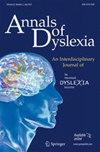Drinking among university students with a history of reading difficulties: motivational and personality risk factors for hazardous levels of consumption
Abstract
Abstract
An increasing number of students are entering university with reading difficulties—whether they be diagnosed or self-reported. Research demonstrates that university students who self-report a history of reading difficulties (HRD) have lower academic achievement and higher anxiety about academic performance as compared to peers without this history (NRD). Here we study other aspects of HRD students’ university experiences, focusing on alcohol consumption. Specifically, we investigated the drinking motives and personality characteristics likely to increase risk of hazardous alcohol consumption among HRD vs. NRD undergraduates. We identified 42 HRD and 54 NRD participants based on responses to a reading history questionnaire. Participants completed questionnaires assessing hazardous drinking, drinking motives, and alcohol-risk personality traits. Both groups reported similarly high levels of hazardous drinking. HRD students reported drinking more to conform with peers, and less to enhance positive moods, than NRD students. HRD students also scored higher in the alcohol personality risk of impulsivity. Our results support a unique pattern of motives and personality risks among HRD students, a pattern that likely puts them at increased risk for sustained hazardous drinking. Clinical implications for preventing problem drinking among HRD undergraduates are considered.

 求助内容:
求助内容: 应助结果提醒方式:
应助结果提醒方式:


